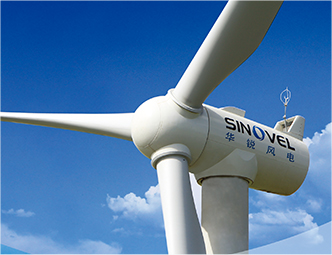China’s Sinovel charged with stealing trade secrets
March 1, 2019



Sinovel Wind Group Co., a Chinese wind-turbine company, was charged with stealing trade secrets from its former U.S. supplier, a case of industrial espionage that may heighten tensions in U.S.-China relations in the wake of the Edward Snowden affair.
U.S. prosecutors secured an indictment of the company and two of its executives in federal court yesterday in Madison, Wisconsin. Also charged was Dejan Karabasevic, who pleaded guilty in Klagenfurt, Austria, to stealing source code for the turbine controllers made by American Superconductor Corp., his former employer. The company lost more than $1 billion in market value after the theft became public.
The indictment’s timing may give it prominence in the U.S. intensifying dispute with China over economic espionage. That conflict has only been inflamed by Snowden’s disclosures of U.S. computer-based spying, and China’s decision to allow the ex-National Security Agency contractor to fly to Russia from Hong Kong, where he had fled.
“My 5-year-old understands that this is wrong,” AMSC Chief Executive Officer Daniel McGahn said by phone. “If your ideas can be stolen without recourse, there is no reason to invest in innovation, and if there is no reason to invest in innovation, there is no purpose to the American economy.”
Sinovel’s stock fell 1.5 percent to 3.95 yuan at 10:44 a.m. local time in Shanghai after plunging 7 percent earlier. Wang Wen, a Beijing-based spokeswoman at Sinovel, declined to comment.
Legal struggle
The indictment is the latest development in a legal struggle between AMSC, a maker of small industrial computers that fit inside wind turbines, and the company that was formerly its largest customer. AMSC, based in Devens, Massachusetts, is seeking more than $1.2 billion in damages from Sinovel in Chinese courts, accusing Beijing-based Sinovel of putting the stolen source code in more than 1,000 turbines that it sold in its home country.
Amy Riella and Elliott Joh, lawyers for Sinovel at Vinson & Elkins LLP, didn’t immediately respond to an e-mail message seeking comment on the charges.
Sinovel, China’s third-largest turbine maker, has been battered by global competition and falling prices for its products. Still, the company remains well-connected to China’s elite. One of its early investors was the private equity group New Horizon Capital, co-founded by Wen Yunsong, son of China’s former premier, Wen Jiabao.
A probe by the Federal Bureau of Investigation, which has been developing the case for more than a year, received a boost when Sinovel exported stolen code to the U.S., installing it in four turbines in Massachusetts. One, owned by the state Water Resources Authority, wasn’t far from AMSC’s headquarters, according to Kerry Farrell, a spokesman for the company.
Cyber espionage
Paul Tiao, former senior adviser for intellectual property crimes to FBI Director Robert Mueller, said the indictment coming just weeks after Snowden fled to Hong Kong with a trove of stolen NSA secrets is coincidental. Regardless, it “underscores the reason why the administration is demanding that the PRC government stop engaging in cyber-based commercial espionage,” said Tiao, now a partner at Hunton.
When President Barack Obama met Chinese President Xi Jinping this month, he raised the issue of “large-scale theft” of U.S. property through Chinese cyberattacks.
An internal investigation by AMSC uncovered hundreds of messages about the code Karabasevic exchanged with three Sinovel employees, including one e-mail in which the engineer sent AMSC’s source code to his counterpart at Sinovel, according to the company.
E-Mail exchanges
Using search warrants, the FBI obtained an even bigger trove of communications that Karabasevic swapped via Yahoo! and Google Inc. Gmail accounts with the two charged executives, Su Liying, deputy director for research and development, and Zhao Haichun, technology manager. Like the company, the pair is charged with conspiracy, theft of trade secrets and fraud.
In one exchange, Su Liying complained about error messages she received after testing the stolen AMSC code in China. Karabasevic obliged by modifying the code so that it would run more smoothly.
Prosecutors said Sinovel induced Karabasevic to provide the code, promising him a $1.7 million contract with the company and other perks. The indictment was filed in Wisconsin because Karabasevic allegedly uploaded the code from an engineering center there.
AMSC, which prosecutors said was cheated out of $800 million, has filed four lawsuits against Sinovel in Chinese courts. After almost two years, the cases are still entangled in procedural disputes, John Powell, AMSC’s general counsel, said in a phone interview.
Suspected violations
Sinovel said last month that it’s being investigated for suspected violations of securities laws and regulations.
The company received a notice from the China Securities Regulatory Commission on the decision to start the probe, and will cooperate, according to a May 28 filing to the Shanghai Stock Exchange. The statement didn’t provide more details.
Sinovel, based in Beijing, in March revised down 2011 profit by 22 percent to 607.4 million yuan($99.1 million) due to an accounting error.
The case is U.S. v. Sinovel Wind Group Co. Ltd., 13-cr-00084, U.S. District Court, Western District of Wisconsin (Madison).
No comments:
Post a Comment
Comments always welcome!